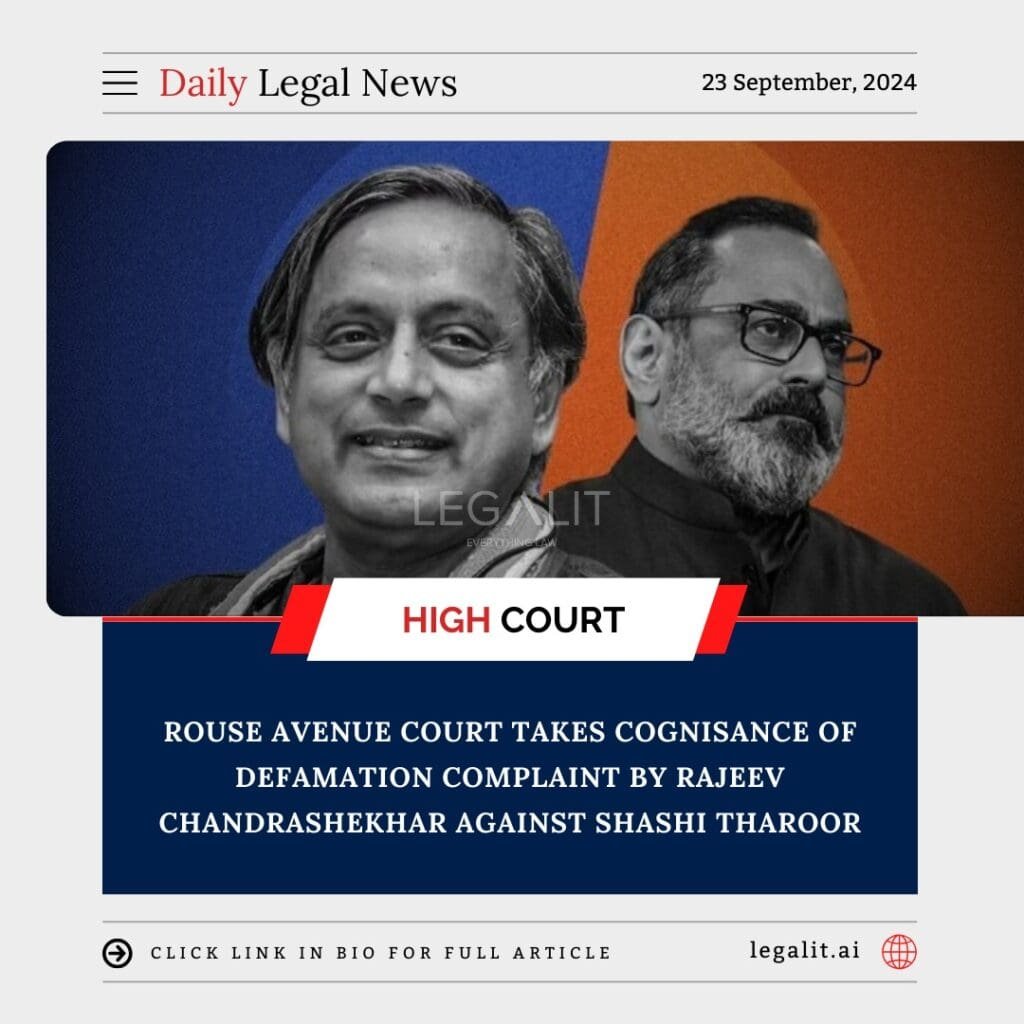
The Rouse Avenue Court in Delhi has taken cognisance of a defamation complaint filed by Union Minister Rajeev Chandrashekhar against Congress MP Shashi Tharoor. The complaint stems from remarks made by Tharoor, which Chandrashekhar alleges were defamatory and intended to harm his reputation. The court’s decision to take cognisance is the first formal step in the legal process and could lead to further proceedings against Tharoor.
Background of the Case
The complaint revolves around comments made by Shashi Tharoor, a well-known parliamentarian and author, which Rajeev Chandrashekhar claims were defamatory in nature. While the exact statements in question have not been made public at this stage, it is believed that they relate to Chandrashekhar’s role in certain political matters and his public image as a Union Minister.
Chandrashekhar, a member of the Bharatiya Janata Party (BJP) and currently serving as the Minister of State for Electronics and Information Technology, has asserted that Tharoor’s remarks were baseless and had the potential to damage his reputation and credibility.
Defamation Complaint Details
- Allegation of Defamation: Rajeev Chandrashekhar alleges that Tharoor’s statements were made with malafide intent and amounted to criminal defamation under Sections 499 and 500 of the Indian Penal Code (IPC).
- Reputation at Stake: Chandrashekhar claims that his public standing and reputation, both as a Union Minister and as a businessman, were harmed by the statements made by Tharoor.
- Legal Process Initiated: The court’s cognisance of the complaint means that it has found sufficient grounds to consider the matter, and Tharoor may be called upon to respond to the allegations.
The Legal Context
Defamation in India can be pursued under both civil and criminal law. Under Section 499 of the IPC, defamation involves making a false statement that harms the reputation of an individual. If proven, the accused can be penalised under Section 500 with imprisonment for up to two years, a fine, or both.
In this case, Rajeev Chandrashekhar has pursued the criminal route, seeking to hold Tharoor accountable for what he views as harmful and injurious remarks.
Potential Consequences
- Legal Proceedings Against Tharoor: If the court finds merit in the complaint, it could lead to a protracted legal battle, with Tharoor being required to defend his remarks in court. This could also affect Tharoor’s public image, given his high profile as a Congress leader and a former diplomat.
- Impact on Political Relations: The defamation case could strain relations between leaders of the BJP and the Congress, especially given the often-volatile nature of political discourse in India. This case adds to the ongoing legal battles between politicians from different parties.
- Free Speech vs Defamation: The case could also rekindle the debate over free speech in India, particularly the fine line between expressing opinions and making defamatory statements. Tharoor, who is known for his eloquent speeches and sharp comments, may argue that his remarks fall within the scope of permissible political criticism.
Conclusion
The Rouse Avenue Court’s cognisance of Rajeev Chandrashekhar’s defamation complaint against Shashi Tharoor sets the stage for a legal confrontation between two prominent political figures. As the case proceeds, it could have significant implications for the boundaries of political speech, free expression, and personal reputation in India’s public life. With both parties being influential voices in Indian politics, the outcome of this case will be closely watched.